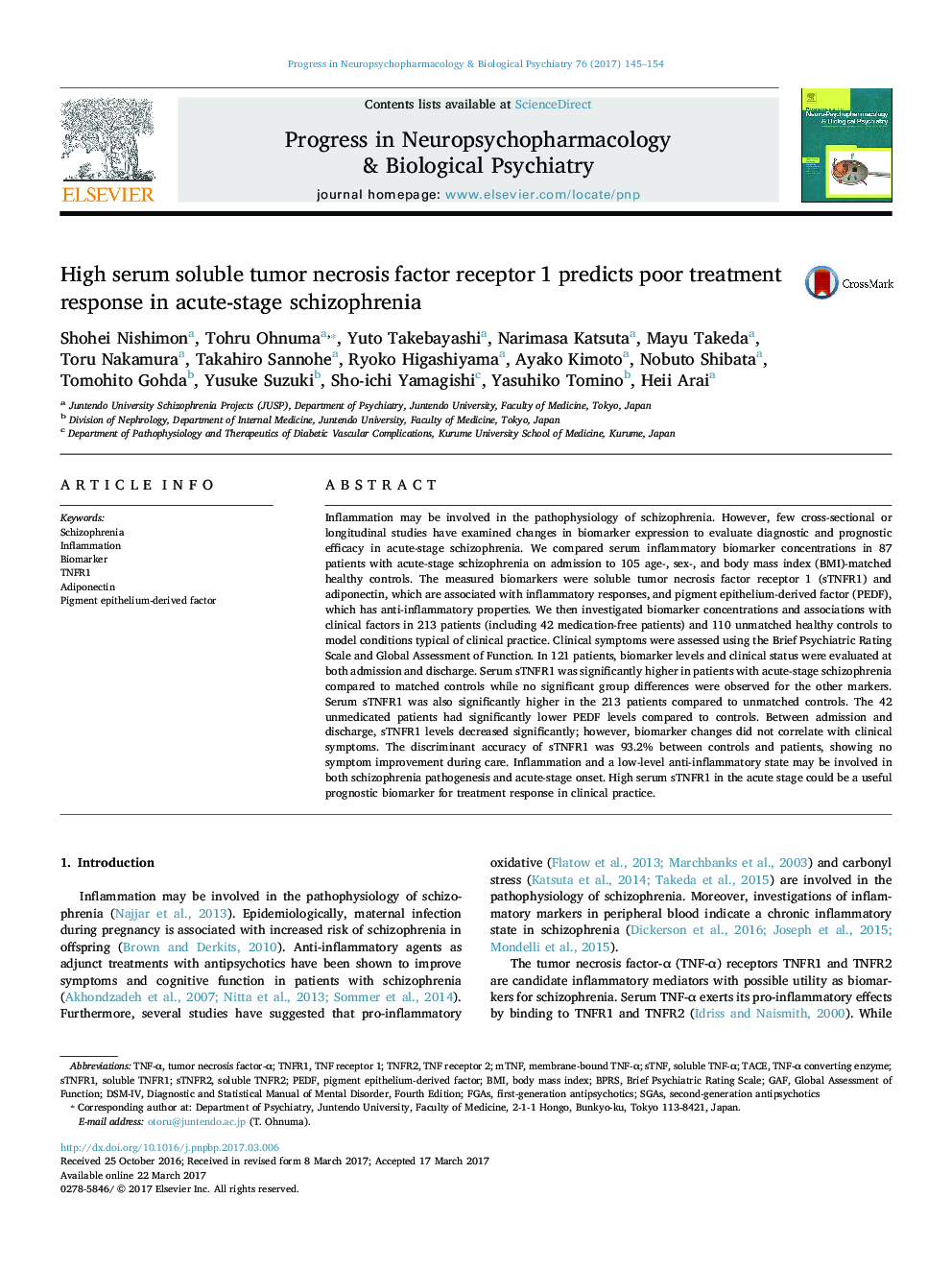| کد مقاله | کد نشریه | سال انتشار | مقاله انگلیسی | نسخه تمام متن |
|---|---|---|---|---|
| 5558100 | 1561018 | 2017 | 10 صفحه PDF | دانلود رایگان |
- We compared inflammatory biomarkers between acute-stage schizophrenics and controls.
- Serum sTNFR1 was significantly higher in patients with schizophrenia than in controls.
- Medication-free patients presented with significantly lower PEDF than controls.
- Serum sTNFR1 accurately discriminated treatment-refractory patients from controls.
- High sTNFR1 could be a prognostic biomarker for acute-stage schizophrenia.
Inflammation may be involved in the pathophysiology of schizophrenia. However, few cross-sectional or longitudinal studies have examined changes in biomarker expression to evaluate diagnostic and prognostic efficacy in acute-stage schizophrenia. We compared serum inflammatory biomarker concentrations in 87 patients with acute-stage schizophrenia on admission to 105 age-, sex-, and body mass index (BMI)-matched healthy controls. The measured biomarkers were soluble tumor necrosis factor receptor 1 (sTNFR1) and adiponectin, which are associated with inflammatory responses, and pigment epithelium-derived factor (PEDF), which has anti-inflammatory properties. We then investigated biomarker concentrations and associations with clinical factors in 213 patients (including 42 medication-free patients) and 110 unmatched healthy controls to model conditions typical of clinical practice. Clinical symptoms were assessed using the Brief Psychiatric Rating Scale and Global Assessment of Function. In 121 patients, biomarker levels and clinical status were evaluated at both admission and discharge. Serum sTNFR1 was significantly higher in patients with acute-stage schizophrenia compared to matched controls while no significant group differences were observed for the other markers. Serum sTNFR1 was also significantly higher in the 213 patients compared to unmatched controls. The 42 unmedicated patients had significantly lower PEDF levels compared to controls. Between admission and discharge, sTNFR1 levels decreased significantly; however, biomarker changes did not correlate with clinical symptoms. The discriminant accuracy of sTNFR1 was 93.2% between controls and patients, showing no symptom improvement during care. Inflammation and a low-level anti-inflammatory state may be involved in both schizophrenia pathogenesis and acute-stage onset. High serum sTNFR1 in the acute stage could be a useful prognostic biomarker for treatment response in clinical practice.
Journal: Progress in Neuro-Psychopharmacology and Biological Psychiatry - Volume 76, 2 June 2017, Pages 145-154
